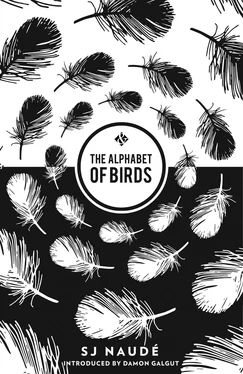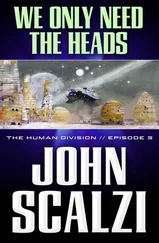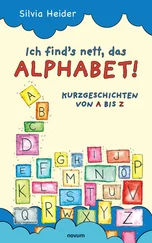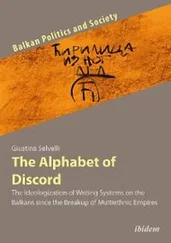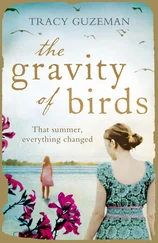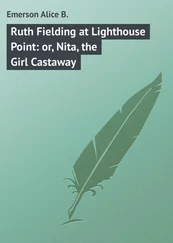It was Ondien’s suggestion to Cornelius that she fly here first, to Zelda, for a weekend. Then to him in London. And from there to Dubai, to Vera, a round of sibling visits. Cornelius is funding it all.
The highway on which they are driving passes underneath the runway. A plane thunders over them, over a thick concrete bridge. Stanley hangs his head upside down out of the car window.
Zelda points out the headquarters of the pharmaceutical company where she is employed as a regional sales manager. Low-slung office buildings right next to the highway, as brown as the barren hills behind them. Like barracks. Rows of flags in the sun: the Stars and Stripes alternating with the company logo.
The house is in a newly built suburb, slapped down here during the property bubble. One of those toy neighbourhoods with neat lawns, white postboxes and paved driveways. At least half the houses are standing empty. Computer-controlled sprinklers are spraying in the desert heat. Inside the house air conditioning is humming.
‘Tea?’
Zelda looks lost in her kitchen. She searches in one cupboard, then another.
‘Only herbal tea, I’m afraid. Oh, and coffee.’
‘How about something stronger?’
Zelda frowns. ‘Have you forgotten? It’s morning here. I’m heading to work.’
We can’t all indulge in bohemian slacking, she might have wanted to add, Ondien imagines — some of us have responsibilities.
Stanley has to be taken to a preschool and day-care centre, far from the house and far from Zelda’s workplace. Zelda half drags, half carries the child outside. He holds on to the door frame with both hands. He would probably want to stay behind in order to do away with her, Ondien thinks. The child grabs Zelda by the hair, by her mousy brown bob. It strikes Ondien that he is unnaturally strong, stronger than Zelda. After a brief struggle, Zelda and Stanley drive away in the white car.
Ondien does not unpack. She wanders through the grey light suffusing the house. Through net curtains the slope of a bare, dry mountain is visible. She opens the fridge, stands in the glow. It is almost empty, bar a few packets of processed cheese and meat. Half a carton of long-life milk. The carpets smell of glue, as if they have just been laid. In the child’s room there is a pine bed with a duvet (a ‘comforter’, her Americanised sister would call it), a bare desk and a chair. The comforter strikes her as the only soft thing in the room. There are no magazines anywhere in the house, no mail waiting to be read. The walls are bare and white. It is as if the place has been rented for the day, a set with props, hastily prepared for a film shoot.
When Ondien awakes from a jet-lag nap, blue light is shining through her bedroom door. She walks into the empty living room. Early evening. The enormous television set is on. A silent American football match. The front door opens. It is Zelda. Ondien notices Stanley in a corner behind her, where he has been sitting all along. Her scalp tightens at the thought of her sleeping self alone with the child in the house. Zelda is grey with tiredness. A hot wind enters the house behind her. She puts Chinese takeaways on the table.
Initially they eat in silence. The child pushes bits of vegetables from his plate. They collect in puddles of soy on the table. Zelda stares at him without saying anything. Stanley’s gaze meets hers and he makes an unearthly sound. His speech is not normal, Ondien has noticed. When she saw the child before in South Africa, she did not realise; she kept her distance, observing his cruel spells from afar.
‘Does he have a speech impediment, or is he just his father’s child?’
‘Oh, please, Ondien. He is sitting right next to us.’ She is now speaking Afrikaans too.
‘But he doesn’t understand a word!’
Stanley has stopped eating. He is looking intently at Ondien, a restless fork in his hand.
‘I know he’s impossible, Ondien, but he is six years old. And he has a hearing problem.’
‘Sorry, I didn’t know that.’
‘When he hears a strange language, it’s as if he’s being teased. It provokes him. That’s why he was so upset at Dad’s funeral.’
That is Ondien’s clearest memory of that grim visit to South Africa. Stanley moaning loudly, straining towards the open grave and kicking in soil while the elderly Basotho farm labourers were trying to sing something. The child seen from behind, a convulsive little figure kicking up dust, his mother trying to hold him back. On the other side of the hole, the handful of singing people, hunched together in an attempt to occupy as little space as possible.
‘At first I spoke Afrikaans to him, and his father English, to make him bilingual. A speech therapist and child psychologist said it was increasing his frustration and behavioural problems. When Cayle finally left, I spoke only English.’
‘Tell me,’ Zelda switches back to American, the Afrikaans and South African English just under the surface, ‘what’s happened to your music, to your life in London and Paris? How did you end up amongst the mine dumps?’
Ondien shrugs her shoulders. ‘I think the music has left me.’ She came, she thinks, to a certain point where she couldn’t hear anything any longer. For so long, it was such an obsession, so deep in her skull, and then it was suddenly gone. She snaps her fingers. ‘Just like that.’
Zelda nods wearily. ‘It’s called “giving up”. Believe me, I know it when I see it.’
Ondien says nothing.
‘So, what are you doing over there in Johannesburg?’
‘At first I did some dry academic work. I thought: if you can no longer feel the music, then you may as well listen to it from a distance. For a while I was a volunteer in a rehabilitation centre for children with neurological injuries. Wanted to write an article about the musical abilities of children with aphasia.’
‘Aphasia?’
‘Loss of language capacity. Upsetting to observe, at the beginning. Some of the children can only sing and no longer speak. Some keep repeating ossified words or phrases, a kind of ghost language. Some make up their own stuff, create incredibly complex sentences, swap letters and syllables, talk gibberish … Some understand what they are saying, others don’t. Some hear their own mistakes, but can’t help them. Once they realise they’re not understood, they become immensely frustrated. Others are completely unaware. The happiest ones are those who don’t know what they’ve lost or forgotten. The one who could only sing couldn’t understand a word of her own songs.’ Ondien looks down, shakes her head thoughtfully. ‘But she was the most blissful human I’ve ever encountered.’
‘So, why did you leave?’
‘I started helping with the therapy. “Melodic intonation therapy”, it’s called.’
‘What is that?’
Zelda’s questions are automatic, for the sake of politeness. Her sister has, after all, come from afar. Her head droops towards the table, her eyes bleary.
‘Basic exercises to change speech into music. The idea is to elicit language from damaged parts of the brain through linking speech to rhythm and melody.’
‘And what happened?’
Zelda looks as if she could fall asleep at any moment.
‘I didn’t follow the rules. My compositions — my tunes for the phrases and sentences — were apparently too meandering, too unstable.’ Like a muezzin’s calls to prayer from a minaret, she thinks. ‘Or something like that. I tried new methods, experiments. According to the director of the centre I was worsening some children’s conditions. “It’s not an avant-garde music lesson,” she said when she was monitoring me, “it’s a delicate and responsible task.”’ She imitates the director’s voice: ‘You lack sympathy, your banal curiosity is driving you to use vulnerable children for irresponsible experiments.’
Читать дальше
